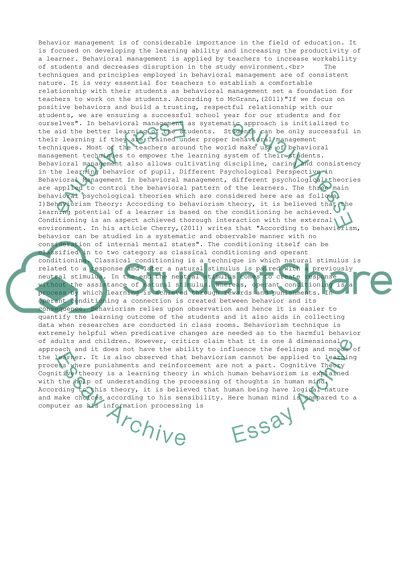Cite this document
(“Behaviour Management and Purposeful Learning Essay - 1”, n.d.)
Retrieved from https://studentshare.org/management/1429294-behaviour-management-and-purposeful-learning
Retrieved from https://studentshare.org/management/1429294-behaviour-management-and-purposeful-learning
(Behaviour Management and Purposeful Learning Essay - 1)
https://studentshare.org/management/1429294-behaviour-management-and-purposeful-learning.
https://studentshare.org/management/1429294-behaviour-management-and-purposeful-learning.
“Behaviour Management and Purposeful Learning Essay - 1”, n.d. https://studentshare.org/management/1429294-behaviour-management-and-purposeful-learning.


